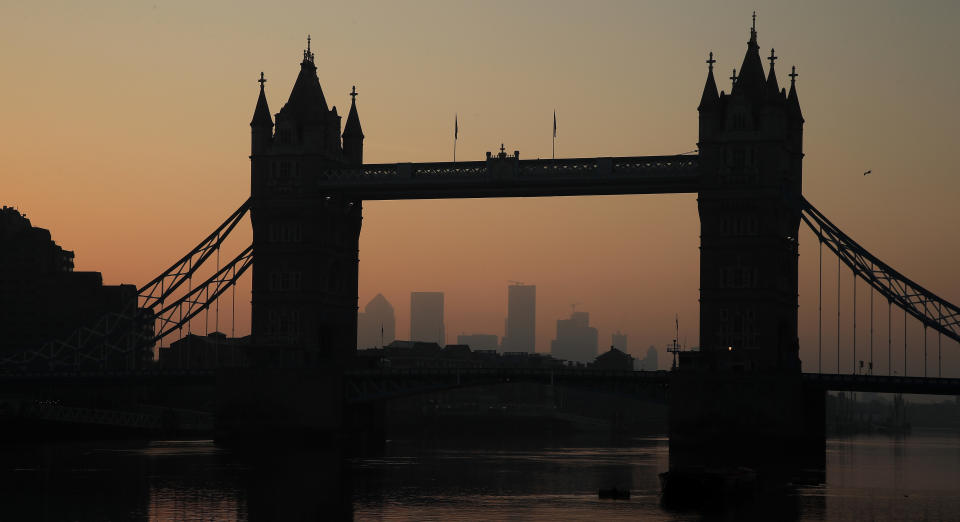Coronavirus: Just 1% of UK firms have permanently shut as a result of crisis

Just 1% of UK firms had reported they had permanently ceased trading by the beginning of May, six weeks after the country went into lockdown due to the coronavirus pandemic.
New data from the Office for National Statistics (ONS) from a survey of more than 18,000 businesses found that 22% of firms had at least temporarily paused trading in the two weeks to 3 May.
But the comparatively low proportion of firms that have permanently shut their operations will ease fears about the longer-term economic impacts of the pandemic, even as the Bank of England last week warned the country was facing its worst recession in 300 years.
Some 99% of firms that had paused trading said they had done so before 20 April, indicating that a signification proportion of UK businesses have been forced to endure a weeks-long cessation in business activity.
READ MORE: WH Smith sees 400% increase in online book sales
While the government has announced an easing of some restrictive measures, the UK is soon set to enter its eighth week of virtual lockdown, raising the prospect that a higher proportion of businesses may take the decision to close their doors in the coming weeks.
Around 44% of the firms that said they had not permanently ceased trading during the period warned that their cash reserves would last less than six months.
Nevertheless, some 77% of businesses across the country reported that they were still trading during the two-week period, but 61% reported that their turnover had decreased to some extent compared with normal trading levels.
While 25% of trading firms said that their turnover had fallen by more than 50%, 32% reported that their turnover was within normal range.
The ONS data also revealed that 91% of businesses who had paused trading applied for the government’s wage-subsidy scheme, compared with 72% of businesses who were still trading.
UK economic output declined by 2% in the first three months of 2020, its fastest quarterly contraction since the 2008 financial crisis, according to data released by the ONS on Wednesday (13 May).
READ MORE: UK economy saw worst slump since 2008 even before full lockdown blow
In March, when the UK-wide lockdown was first implemented, GDP fell by 5.8% compared with February, the largest monthly contraction since 1997, when such records began.
While the declines seen over the first quarter are stark, the full force of the economic impact of the pandemic is not expected to be seen until the second quarter.
The new data also comes after the Bank of England last week warned that the country was on the precipice of its worst recession in over 300 years.
While the bank decided not to issue its traditional forecasts, the bank predicted that the country’s GDP could shrink by 30% in the first half of 2020, the sharpest decline since the Great Frost of 1709.

 Yahoo Finance
Yahoo Finance 
